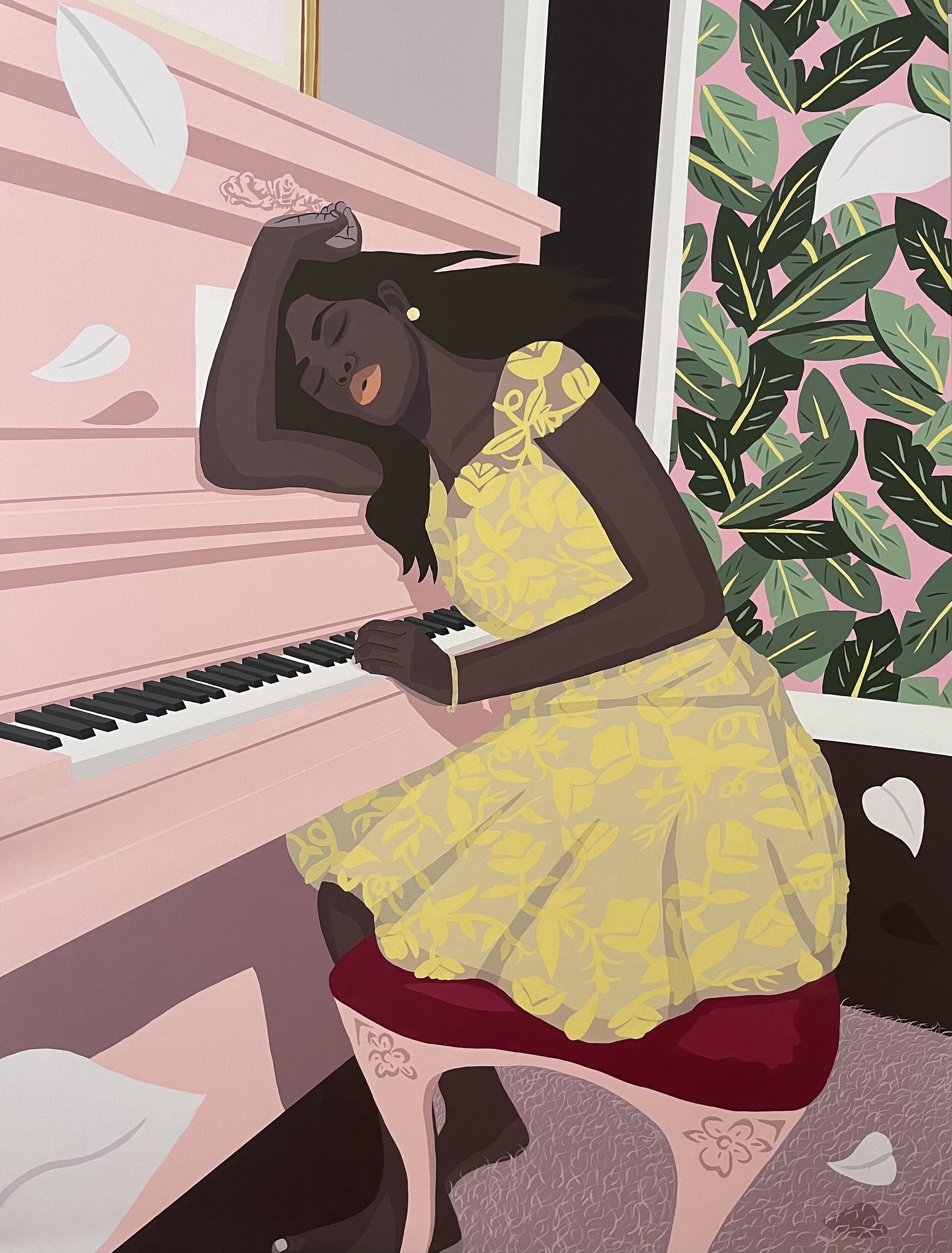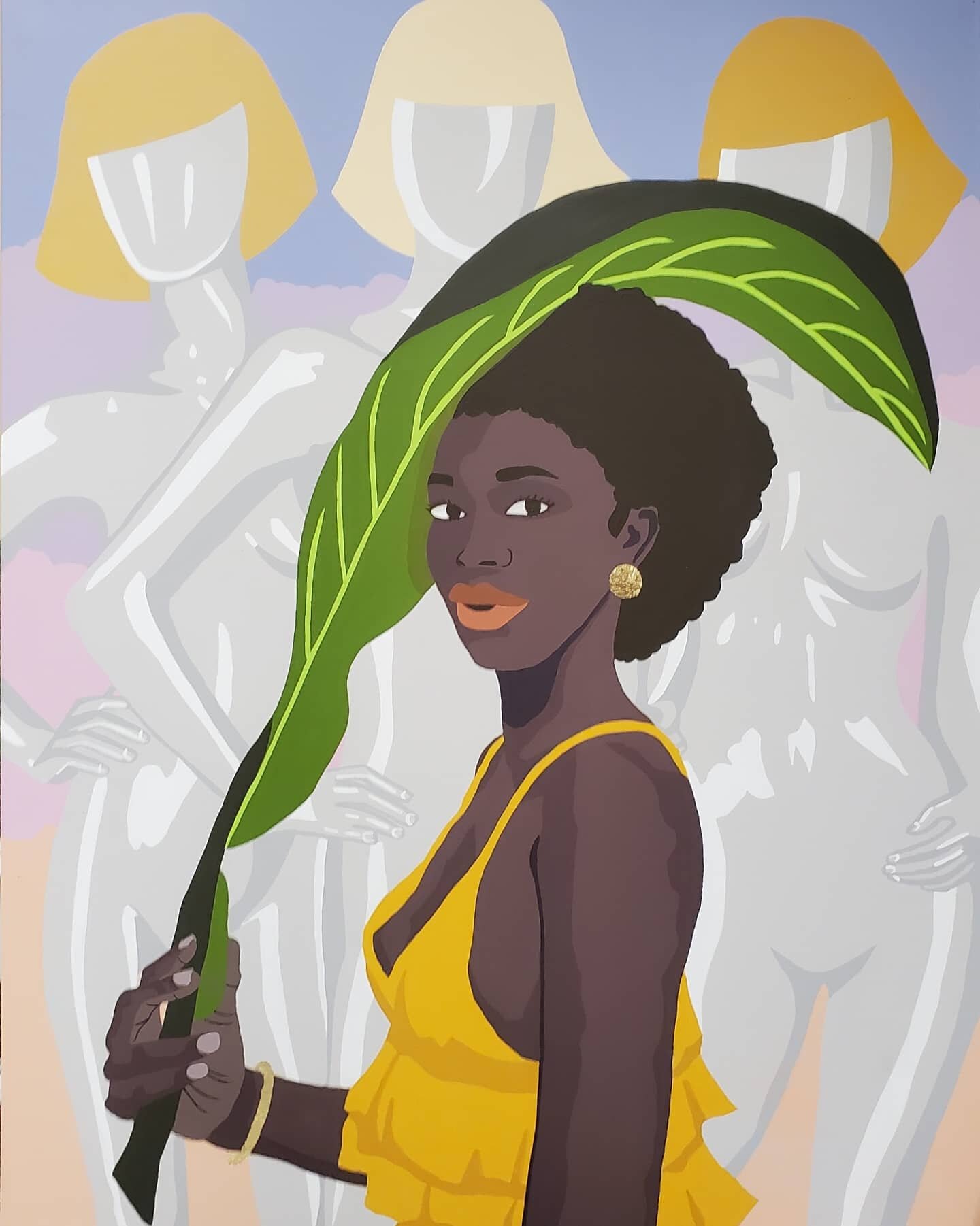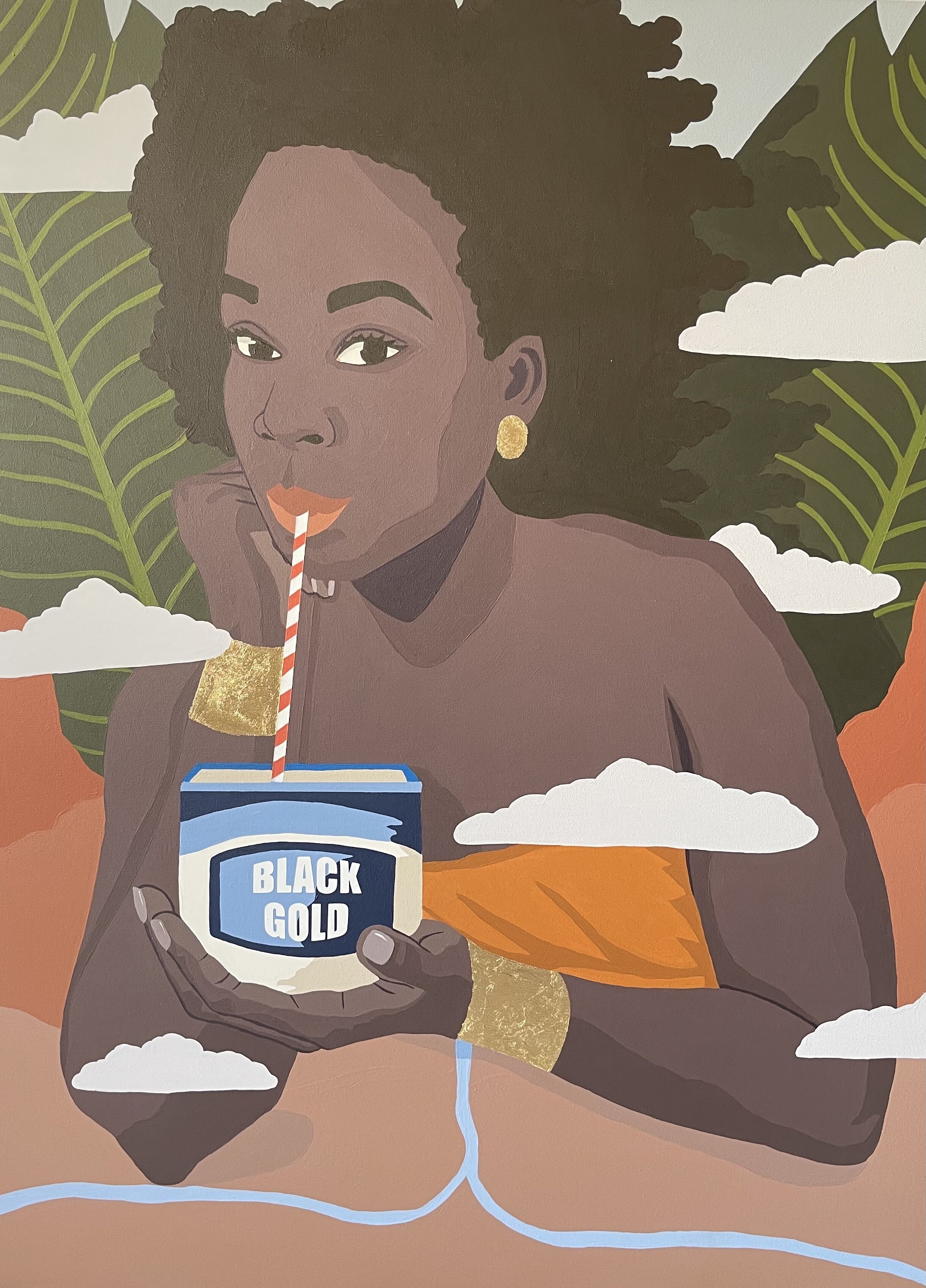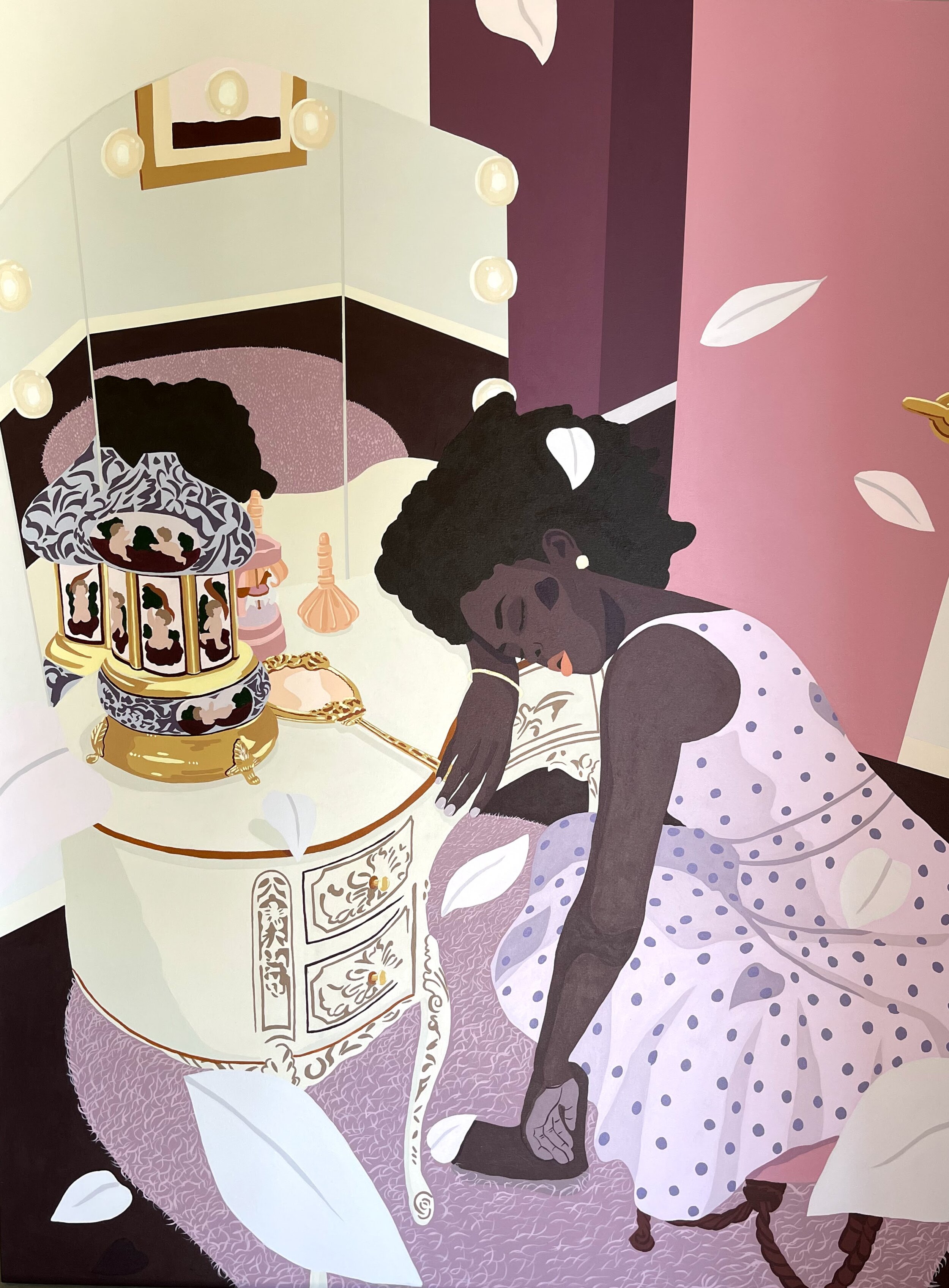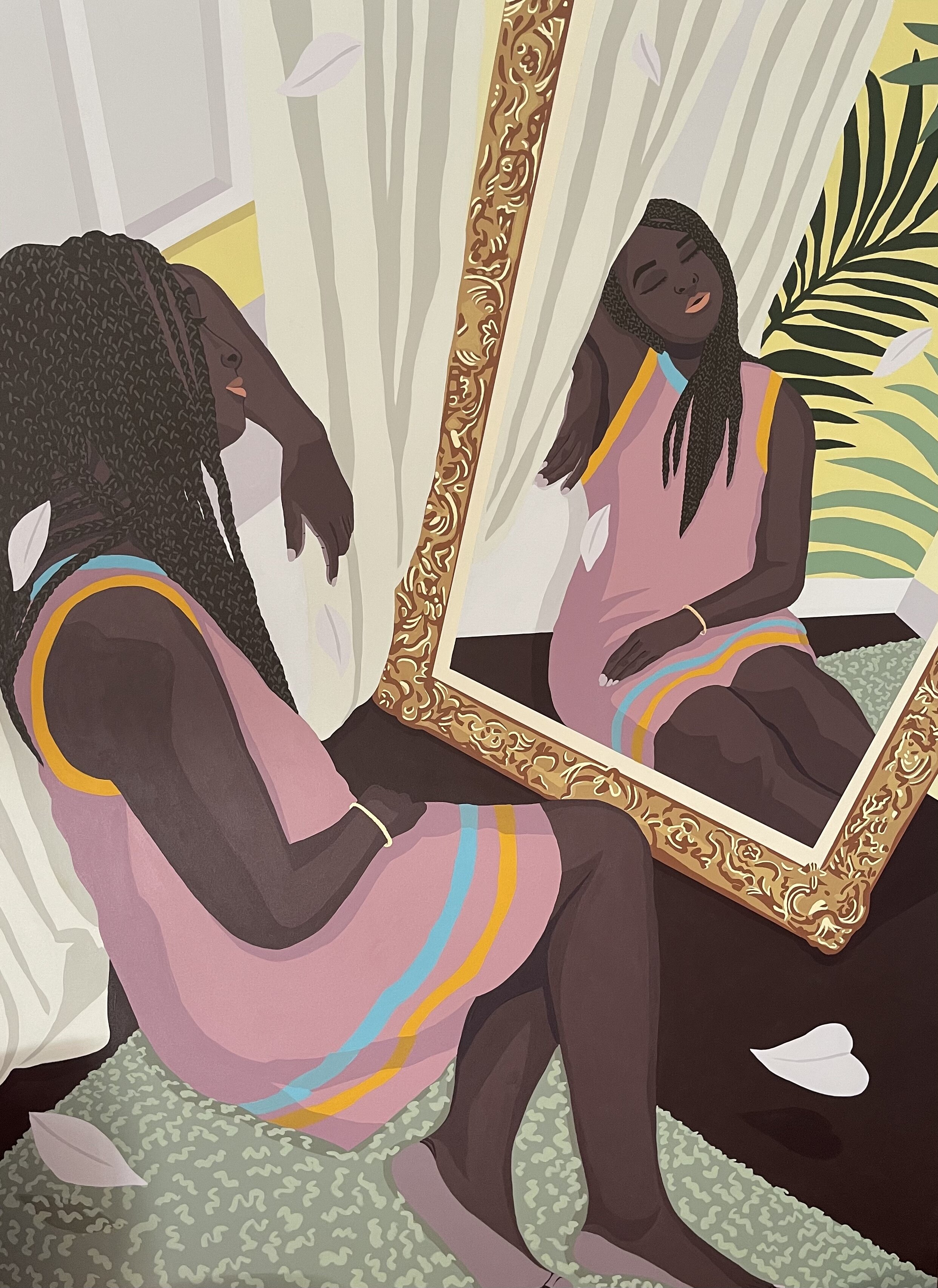Field RESIDENT Sep 12 - Oct 23, 2021
OPEN STUDIO S OCT 23, 12-8pm
Abi Salami
Salami is a self-taught artist who explores the uncanny in the everyday. She allows her subconscious and life experiences to inform her paintings. Salami feels compelled to create and capture moments in time and life to express her thoughts and feelings. Salami's work uses a personal lexicon made up of special symbols to explore memory, mental health, and race. Destigmatizing mental illness in African communities is a huge passion for Salami. Born in Lagos, Nigeria, and based in Dallas, Texas, Salami earned an MPA in Accounting from the University of Texas at Austin and worked in corporate America for almost a decade before committing to painting full-time. Since then, Salami has gone on to exhibiting in Dallas and across the United States including at The Women’s Museum, the African American Museum of Art in Dallas, and Viridian Artists Inc in New York City. She was selected as a candidate of the Saatchi Art 2020 Rising Stars under 35 Class and a 2021 New Voices Top 100 Artists. Her work has been featured on the Washington Post, NBC5 News, FOX16 Morning News, Artsy, D Magazine and Voyage Magazine.
SALAMI'S PROJECT:
I will continue to expand on my series titled I Don't Want to Hear that You Were Suffering, which is a collection of large scale works that explore the negative effects the "Strong Black Woman" rhetoric has on Black women and how it prevents them from having enough energy to center themselves and settle in their femininity.
As a proud black woman, born in Nigeria, by default my work is a celebration of the black female form in its most holistically honest state. A necessity because we suffer significantly with poor mental health and African borne taboo shuns us. Therefore, my work is normalizing our extra need for engaging in self-care: normalizing black women taking a day off and enjoying themselves; normalizing black women wearing luxury items because it makes them feel good; normalizing black women’s natural hair or whatever different hairstyles they choose, and having people realize that depicting that on a canvas can be considered fine art. It does not have to be just an art niche ‘black art.’ My art is black because I am black. Not black because that is what I am choosing to create.


